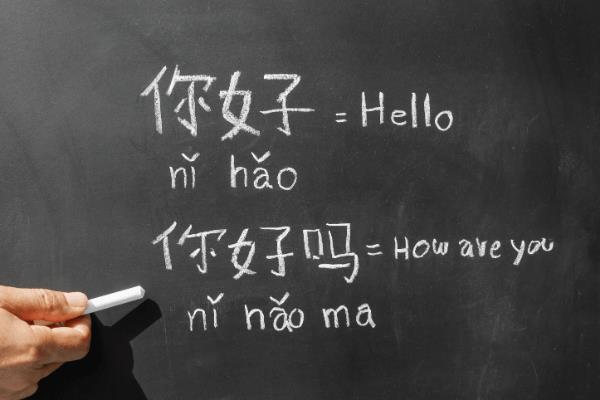The Beginner's Guide to learning Chinese from home
Chinese Mandarin is a very difficult language according to many sources. Some websites rank Mandarin as the hardest language in the world. And maybe it’s true, let’s be honest. Mandarin is not the easiest language to learn. At the end of the day, though, once you get the hang of it, it can be one of the most rewarding.

It’s not an impossible feat, it may take time and effort but you should not fret. Chinese Mandarin is not a wise choice if you are looking for fast learning. You won’t be able to master the language in three months all by yourself with an app. You might need more than that if you want to be fluent.
Even so, once you get the gist, it can be an endless source of fun and entertainment. If you are interested in Chinese culture, then Mandarin is the right language for you. There’s so much to discover that it would probably take millennia to run out of interesting facts and folklore. And nowadays, you can learn any language from the comfort of your home.
What do you need to know before you start?
Before entering the realm of the unknown, it’s important to know the basics of the language you are about to learn. If you take a good look at Mandarin, the first thing you’ll notice is the strange symbols. They don’t use the Roman alphabet so reading the words and making sense of it is impossible. And here’s where pinyin comes in handy.
What is pinyin? Pinyin is a system of transcription that allows those unfamiliar to the Mandarin language to pronounce Chinese words. It’s the commonly used system for transcribing Chinese characters into roman letters. This is the way each syllable of the character is spelled out phonetically in pinyin.

Pinyin is so important because it allows you to make sense of what you are reading without actually diving headlong into the strange and bizarre Chinese characters. Once you master pinyin, you can try learning and understanding the Mandarin words.
Another important factor we have to take into account is that there're two types of systems:
- Traditional Chinese: is the original character system before the government simplified the language in 1950. It’s a bit more complicated but it holds value and years and years of history. It’s used mainly in Taiwan, Hong Kong, and Macau.
- Simplified Chinese: is the standard writing system established by the government and used throughout mainland China, Malaysia, and Singapore. This system is easier to remember and learn. The characters are not that complicated and the characters are more contemporary. They may not be as aesthetically pleasing as the traditional Chinese characters, but they are easier to understand.
It’s up to you to choose which one suits you best. However, don’t try to learn a mix of both or both at the same time. Mandarin is already a complicated language, mixing character systems might not be the wisest choice.
And last but not least, it’s important to remember at all times that Mandarin is a tonal language. What does it mean? Well, it means that Chinese people rely heavily on tones to convey different ideas with the same syllabic sound. Some words might be written the same and have the same syllables but the tone changes the meaning altogether.
Chinese people won’t be able to understand you if you don’t learn how to control the tones or you get them wrong all the time. This can lead to disastrous misunderstandings. To avoid them, try speaking with a Chinese native teacher online. They will probably teach you how to master them in no time.
Common beginner’s mistakes
Don’t focus enough on learning the tones
As English speakers, we are not used to tones. English is a standard non-tonal language. That means that we may find them irrelevant during our study. It may seem like something we can postpone indefinitely until we’ve memorized every character in the system. But the longer we wait, the harder it becomes to understand how it works.
The way to solve this is to start talking right at the beginning. Once you know a couple of the basics, find someone that can correct your speaking. As we previously suggested, a private teacher can be an obvious answer. But if you can’t find a budget for that, try speaking with native friends or other students online.

Focus on random vocabulary and rely too much on memory alone
On the one hand, the memory alone is not going to take you far. When learning a language, memory is a great tool to learn some vocabulary but it’s not the ultimate answer. You need to understand the complex structures that conform to the Chinese language. You need to see how the phrases are built and how some words sound out loud.

On the other hand, before memorizing endless lists of Chinese vocabulary, try identifying the topics that interest you. Be selective about what you want to learn. You may never need to use the word manufacture (制造) in your life unless it’s for your job. Learn what makes you happy, and it will be easier to reach your goal to master Mandarin.
Find a Chinese tutor online here
And If you try to learn what you need, it will be easier for you to stay motivated. How can you do that? A private online Chinese tutor is the right answer. You can tell them what you want and what you need to learn. Not only you can practice speaking, but the lessons can also be adjusted to your interests.
Are afraid to reach out
This is one of the best tips when it comes to language learning. Always ALWAYS ask for help whenever you need it. You don’t have to face this challenge alone. There are students, teachers, or friends who might be more than happy to help you. They might have the answers you are seeking.
Besides, learning on your own from home can feel sometimes isolating and lonely. The best way to combat these feelings is by reaching out to the community. Not only will you build a strong support network, but it’s also a great chance to meet terrific people. Who knows? Maybe you will find yourself planning a trip to Chine with them in no time.
If you are not shy, there’s also the option to be a part of a tandem language exchange. You don’t have to move from your home now, there are apps that connect you to other language students. This method allows you to practice with a Chinese native while also teaching them your language.

Neglect everyday practice
Mandarin Chinese demands a strong and steady study routine. It’s important to create healthy habits that allow you to practice the language a bit every day or every other day. Easier said than done, we know that.
Creating a routine is probably harder than mastering the language. It’s a real nightmare if you are not prompt to routines. A million things can happen, and we may feel very tempted to break the habit. Having said that, it still is a fundamental part of learning a language.
What can we do to prevent a learning slump? The first thing would be to establish a realistic time to study on a daily basis. It’s a common mistake to think that you will be able to study for two hours every day of the week. But no, it’s too much. You can cram for hours on end any day you want, but it’s not healthy or realistic to try to maintain it. Try to study 20 minutes or an hour with an online tutor.

At last, for those days when you can be bothered, don’t worry. Leave the textbooks, the flashcards, and the lists aside. Watch a TV show or a film in Mandarin (with subtitles of course). Even if you don’t feel like studying, try to stay in the zone and learn in a passive way.
Stay inside their comfort zone for too long
Mandarin is a hard language to learn, you need time to feel at ease and comfortable with the way it works. Even so, try challenging yourself from time to time. If you don’t venture into the unknown, you have fewer chances of improving. Find ways to test your knowledge and see the progress you’ve made.
Take into account, however, that challenging yourself can be a double edge sword. Success is a great motivator, but failure can be a bitter companion. If you see your improvement, you will resume learning with a renewed attitude. But if you don’t, it may make you miserable. It’s a high risk high reward.
Try to approach this with a rational and positive mindset. Remember that being fluent will take time and the results are sometimes very subtle. You can start small (watching a TV show in Chinese) and build to more difficult things (taking the sample HSK exams).

How can I do all of this from home?
Learning Mandarin from the comfort of your home is now a reality. And the best way to do it is through a Chinese online tutor. Why? Personalized learning. Every student has its personal needs and goals. We are complex individuals that require different learning methods and the only way to become our best is a personalized experience.
With Classgap, all the requirements we may have as students can be met. This platform connects students with Mandarin teachers. Once you find your candidate, you can start learning through the virtual classroom. And this virtual environment is equipped with all the necessary tools for a lesson.
What are you waiting for? Start learning Chinese now.
